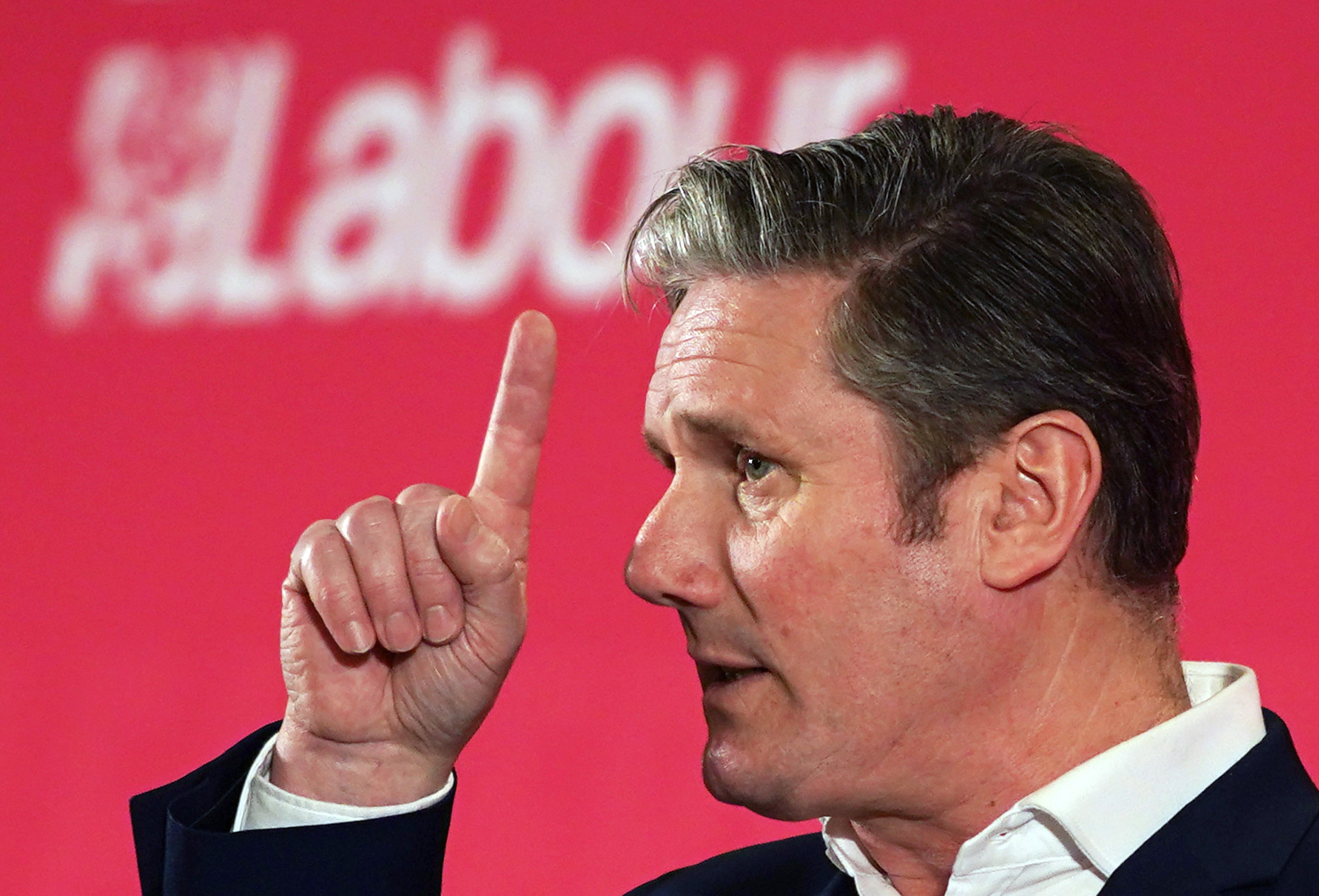The Tories want to portray Keir Starmer as unpatriotic and soft on crime – he must come out fighting
The Labour Party shouldn’t shy away from a debate about values and leave the battlefield clear for the Tories, writes Andrew Grice


What did this week’s government proposals to send asylum seekers abroad, increase the UK’s stockpile of Trident nuclear weapons and reform policing laws have in common? They were all designed, at least in part, to put Labour on the wrong side of a dividing line in the eyes of voters, particularly in the red wall.
Any government has the power to set the agenda and Boris Johnson is using it ruthlessly and shamelessly to try to portray Keir Starmer and his party as unpatriotic and soft on crime, asylum and defence. It’s not true, but it might work.
So it gives Starmer a huge dilemma, when it is already hard for Labour to make headway during a national emergency. “This is a difficult time for us, and the Tories are trying to make it even more difficult,” one Labour frontbencher admitted.
Of course, ministers argue that all three measures address real issues and deny the charge they are merely picking fights with the opposition. Yet it’s increasingly clear their policies factor in a desire to wrong-foot Starmer – a backhanded compliment, perhaps, but one the Labour leader could do without.
Take Trident. The surprise decision to lift the cap on the number of warheads from a planned 180 to 260 was one of the few elements in Tuesday’s review of foreign policy not to be trailed to the media in advance. Why? Because the government did not have a convincing argument to justify it, and knew experts would question it, as they did later.
The Tories are well aware that Labour is split on Trident. They no longer enjoy the bonus of a Labour leader in Jeremy Corbyn who said he would never press the nuclear button but will be happy that Starmer questioned the proposal to increase Britain’s nuclear arsenal.
Never mind that the government has not decided it will increase the number of warheads or budgeted for something that would take several years if it ever happens. (I don’t think Rishi Sunak will be very receptive when the Ministry of Defence asks for a special fund.)
The dividing line the Tories want the public to see is between “strong” and “weak” rather than “right” and “wrong”. It’s the same on immigration and asylum. Yes, Priti Patel is right to argue that the number of asylum seekers crossing the Channel has risen. But sending them abroad while their claims are processed smacks of a stunt that will prove much harder to implement than the headlines suggest.
Previous flirtations with this policy failed when other countries refused to house offshore centres; now Gibraltar and the Isle of Man have reacted angrily to suggestions they will do so. That could force the government down a dangerous route – using countries with a questionable human rights record.
Read more:
As on Trident, big headlines are not always followed by big policies; we will see whether the asylum proposal happens. Again, the Tories were happy to see Labour denounce the idea as “absurd”.
Ministers were less comfortable when the passage of the Police, Crime, Sentencing and Courts Bill, giving police sweeping powers to limit demonstrations, coincided with the outcry over the Metropolitan Police’s woeful mishandling of the vigil for Sarah Everard on Clapham Common. Labour had intended to abstain but felt emboldened to vote against a measure about which several Tory MPs have deep reservations, including that well known liberal softie Theresa May.
There was a lesson in this episode for Labour. Some party figures believe the right approach is to avoid the Tory traps, as Starmer has tried to do on Brexit and the government’s culture wars on issues such as removing statues. But sitting on the fence is not a strategy. Starmer got his backside burnt when he abstained on coronavirus restrictions, struggling to explain how something that looked weak was “in the national interest”.
Ducking tricky issues provokes internal dissent when Labour MPs are jittery about the Tories’ average eight-point lead in this month’s opinion polls. It risks leaving Labour invisible at a time when Starmer is under pressure to define what he is about.
As he approaches the end of his first year in the most difficult job in politics, Starmer and his shadow cabinet need to come out fighting. They shouldn’t shy away from a debate about values and leave the battlefield clear for the Tories. Labour has plenty of ammunition, too.
As it pointed out, the police bill will bring in maximum 10-year prison sentences for someone who damages the statue of a slave trader, while rape sentences start at five years. The Tories’ position on such issues is not as impregnable as many in Johnson’s party think.
Join our commenting forum
Join thought-provoking conversations, follow other Independent readers and see their replies
Comments
Bookmark popover
Removed from bookmarks